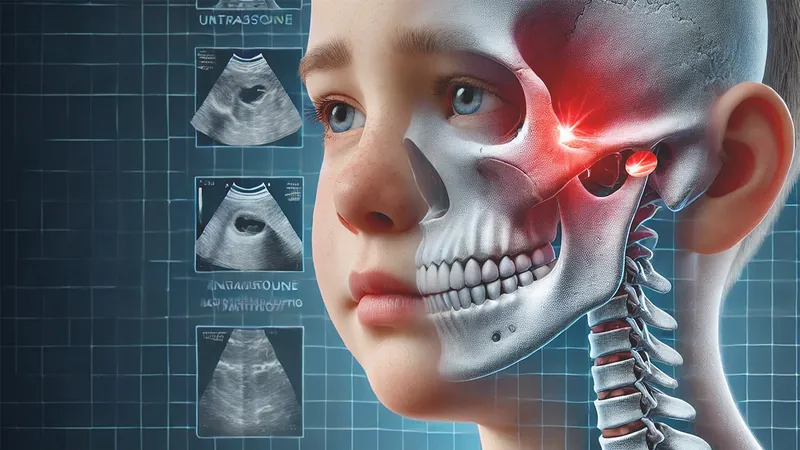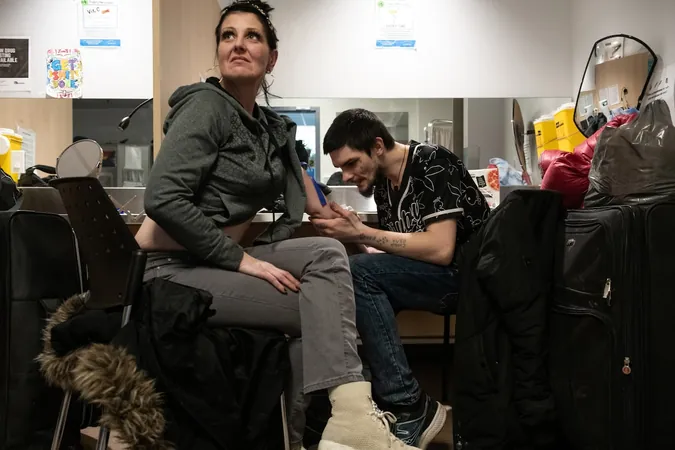
Alarming Study Reveals Higher Suicide Rates Among Female Physicians
2025-04-01
Author: Liam
In a shocking revelation, new research shows that female physicians experience a significantly higher rate of suicide compared to their counterparts in the general population. A study published in JAMA Psychiatry highlights that female doctors are 53% more likely to take their own lives than women who are not in the medical profession.
Hirsh Makhija, M.S., a postgraduate volunteer researcher in the Department of Psychiatry at UC San Diego School of Medicine and the study’s first author, expressed the urgent need for change in the medical field. "Physicians dedicate years to rigorous training and education to care for patients within a complex healthcare system. Unfortunately, in the process, their own mental and physical well-being is frequently neglected. Stigma surrounding mental health, combined with fears of losing their medical licenses, holds many back from seeking the help they desperately need,” Makhija explained.
The study underscores the critical issue of mental health in the healthcare sector, where burnout and depression are prevalent. Makhija stated, “Our research not only confirms findings from previous international meta-analyses but also identifies key areas for suicide prevention initiatives in the medical community, such as addressing job-related stress, mental health crises, and legal issues.”
To reach these conclusions, researchers analyzed data from the National Violent Death Reporting System from 2017 to 2021, examining over 137,000 suicide cases. While 80% of the physicians who died by suicide were male, the data showed that female physicians had a strikingly higher rate than women in the general population.
Significantly, the study revealed that physicians who ended their own lives were 66% more likely to confront other mental health challenges, 35% more likely to report depression, and 40% more likely to face legal troubles. Furthermore, they were more than twice as likely to be affected by career-related issues.
Makhija emphasized that while the dataset predominantly represented males, the high risk among female physicians compared to the general public was especially concerning. “This discrepancy sheds light on the specific challenges faced by women in medicine,” he acknowledged.
The researchers also found that physicians were 85% more likely to choose poisoning as a method of suicide, and over four times more likely to use sharp instruments. There was a shocking 75% increased likelihood of testing positive for benzodiazepines, as well as increased instances of other prescription medications related to mental health issues.
Although the study does not concretely establish the reasons behind the heightened risk for female physicians, several potential factors have been proposed. Makhija noted, “Possible contributors include under-recognition of their accomplishments, unequal pay and promotional opportunities, greater domestic responsibilities leading to work-life balance struggles, and the risk of facing sexual harassment. These challenges are common among women overall but intersect uniquely within the healthcare environment, exacerbating the risk for female physicians.
The impact of stigma surrounding mental health issues cannot be overlooked either. “Seeking treatment can jeopardize a physician’s career and public perception, leading to a vicious cycle of self-stigmatization and fear of licensing repercussions,” Makhija remarked.
Currently, few resources exist specifically designed for physicians experiencing mental health concerns. Initiatives like the UCSD HEAR program, which connects healthcare professionals to vital mental health support, are a step in the right direction, yet more comprehensive resources are urgently needed.
This alarming study serves as a call to action, highlighting the pressing need for systemic change in the healthcare industry to protect those who dedicate their lives to caring for others. The implications of such findings warrant robust discussions about mental health resources and support for physicians, with the ultimate goal of creating a healthier work environment and reducing the tragic toll of suicide in the field.









 Brasil (PT)
Brasil (PT)
 Canada (EN)
Canada (EN)
 Chile (ES)
Chile (ES)
 Česko (CS)
Česko (CS)
 대한민국 (KO)
대한민국 (KO)
 España (ES)
España (ES)
 France (FR)
France (FR)
 Hong Kong (EN)
Hong Kong (EN)
 Italia (IT)
Italia (IT)
 日本 (JA)
日本 (JA)
 Magyarország (HU)
Magyarország (HU)
 Norge (NO)
Norge (NO)
 Polska (PL)
Polska (PL)
 Schweiz (DE)
Schweiz (DE)
 Singapore (EN)
Singapore (EN)
 Sverige (SV)
Sverige (SV)
 Suomi (FI)
Suomi (FI)
 Türkiye (TR)
Türkiye (TR)
 الإمارات العربية المتحدة (AR)
الإمارات العربية المتحدة (AR)